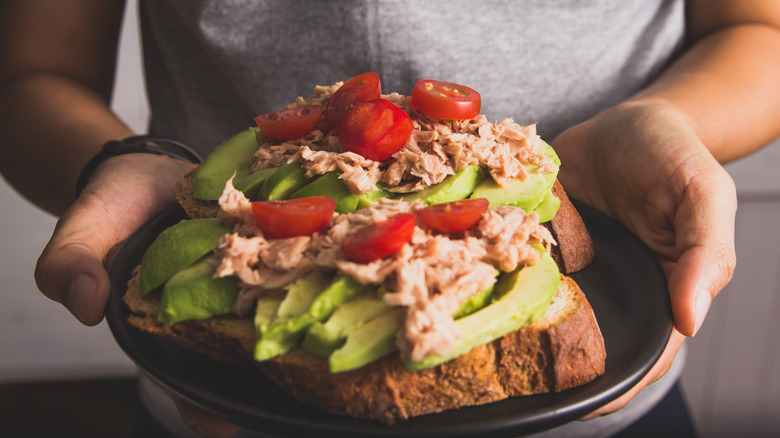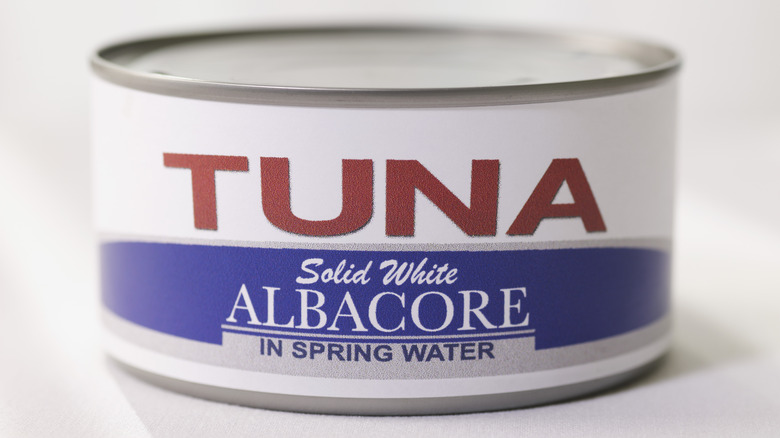How Eating Canned Tuna Can Help You Lose Weight
Everyone's weight loss journey is different, and it can be hard not to get sidetracked by fad diets. In addition to being dangerous, many of these diets lack the balance needed to achieve sustainable weight loss. So, you might be skeptical when you hear canned tuna can help you lose weight.
Tuna is a common ocean fish easily found in grocery store aisles. It has a flaky, distinct taste, which enriches the flavor of salads and sandwiches. In addition to being inexpensive, it's low in calories and contains different vitamins. You'll also find different types of tuna lining the shelves, like light tuna or albacore, each carrying its own unique texture. Tuna packs a big punch in the protein department, which has a host of weight-loss benefits. it's also nice for those individuals on the go because you don't need to do anything but open the can and reap the rewards.
Get an in-depth look at how canned tuna can help your weight loss journey. This can help you understand the importance of choosing the right canned tuna and its potential dangers.
Eating tuna for weight loss
There are a lot of different fad diets that can be worse for your health than you think, like the tuna diet. While it's essential to stay away from diets that restrict your meals and nutrition (unless under the direction of your health care specialist), it's beneficial to add canned tuna to your meal plan if you're looking to add a new option.
One of the great things about tuna is that it packs all that flavor into not a lot of calories. A five-ounce can of tuna in water has 120 calories, according to Chicken of the Sea. It's also overflowing with protein at 30 grams for the same container. So, adding it to a salad can bump up the deliciousness and protein content. And high protein diets make you feel full and control your appetite, per a 2014 study in Nutrition Journal. Protein doesn't just keep you full, though; it's also important in helping you to build lean muscle. Feeling full and having leaner muscle means saying goodbye to unwanted fat. Additionally, tuna is also full of nutrients like B12 and polyunsaturated fatty acids, which are good for anemia and heart disease.
Given the leanness of the meat and robust flavor, tuna adds variety and fun to your diet plan. However, consuming too much tuna can also have side effects you should be aware of.
Possible downside to eating too much tuna
Tuna is a wonderful superfood to help you achieve your weight-loss goals. That doesn't mean you want to add tuna to every meal. Moderation is vital to any good weight loss program, including working tuna into your diet. For one, you'll quickly get sick of it if you eat too much.
Tuna also has another caveat when it comes to having too much: mercury. Since it comes from an ocean that's getting polluted by humans, tuna is also getting contaminated with varying amounts of mercury, according to Healthline. In moderation, small levels of mercury aren't going to cause any effects, but too much can cause fatigue and other symptoms. The amount of mercury varies by the size of the fish, so you might want to stick to smaller tuna fish, like light tuna and skipjack, and avoid the albacore type of canned tuna when worried about mercury.
While you don't want to eat tuna every meal, it's a delicious lean meat that's high in protein to help you lose inches. It's also packed with lots of vitamins to make your body happy.



